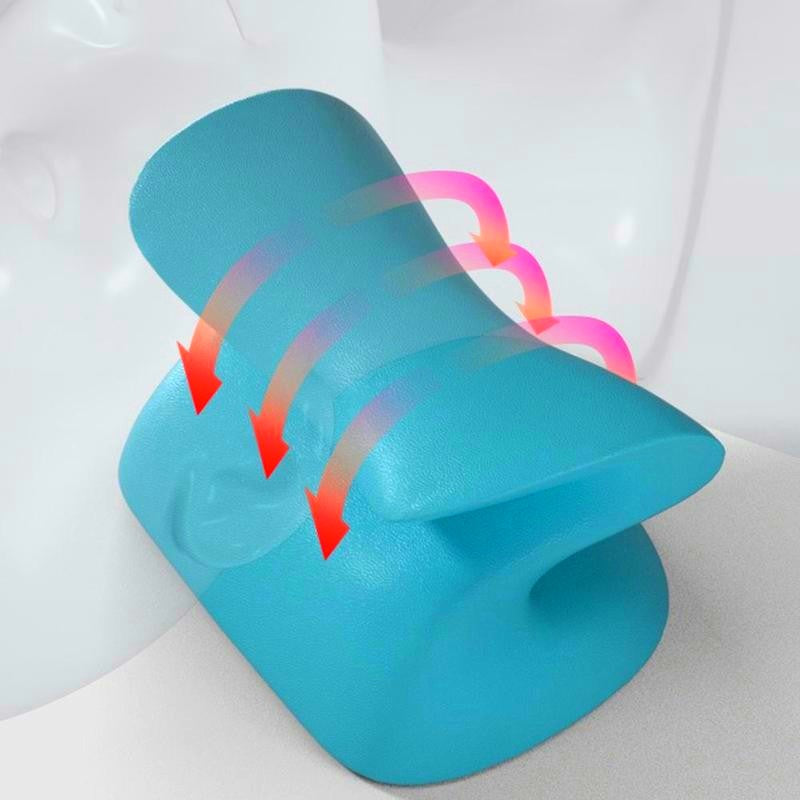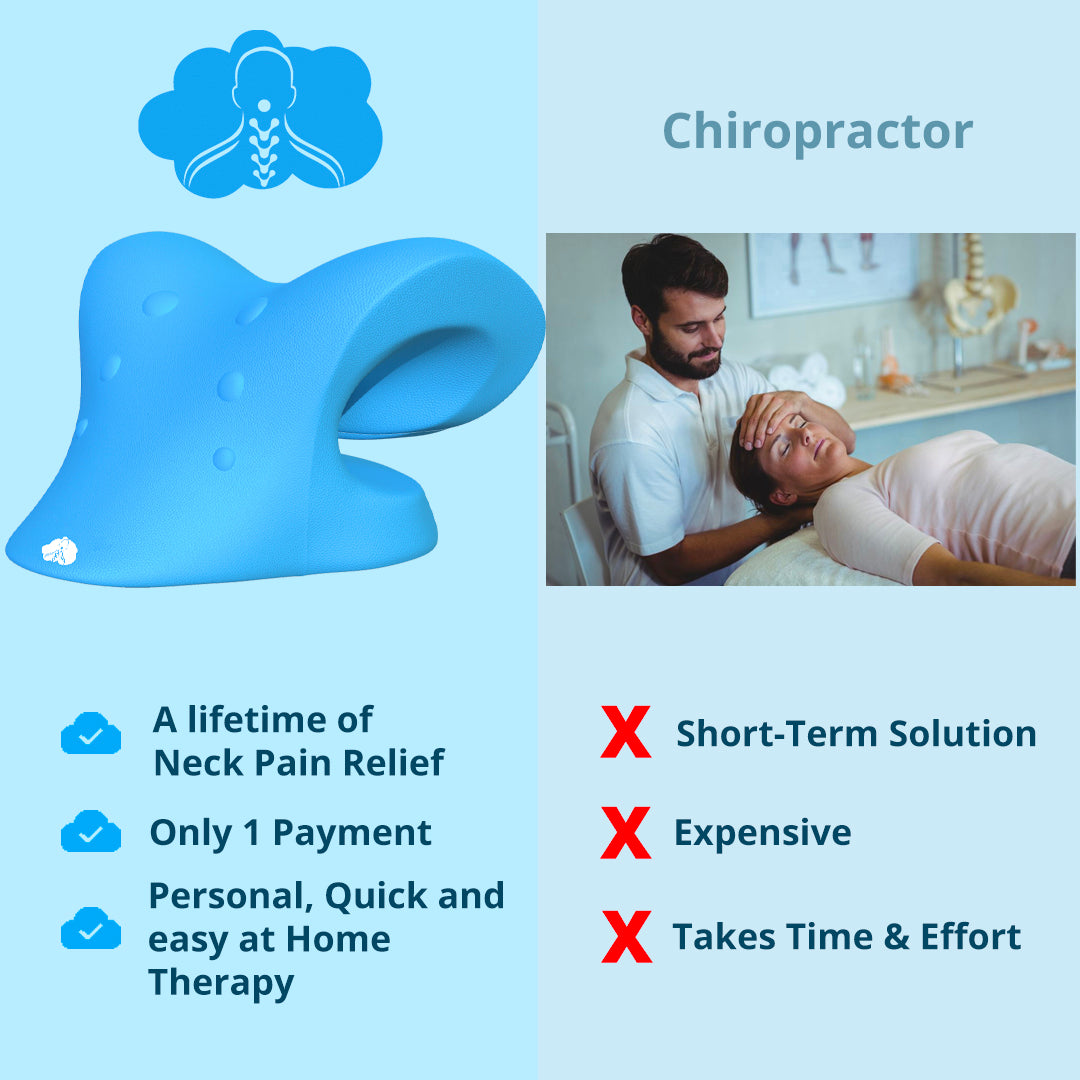Improve Your Posture and Reduce Neck Discomfort with the Neck Cloud
Improve Your Posture and Reduce Neck Discomfort with the Neck Cloud
Blog Article
The Effect of Anxiety on Neck Pain: Techniques for Decreasing Tension and Discomfort
In today's hectic globe, it's no secret that tension has actually come to be a prevalent aspect in the onset and exacerbation of neck discomfort. Join us on a journey to unwind the effect of stress on neck pain and discover reliable ways to alleviate pain and improve total high quality of life.
Recognizing Stress-Related Neck Discomfort
Neck discomfort is a common grievance that can commonly be attributed to anxiety. Stress-related neck discomfort can show up as tension, stiffness, or discomfort in the neck and shoulder location. The link between anxiety and neck discomfort depends on the body's physical feedback to tension, which can cause muscle stress and tightness in the neck muscle mass. Persistent tension can bring about persistent neck pain and worsen present conditions like cervical spondylosis or muscle mass stress.

Identifying Common Stress Areas
Frequently experienced by people under stress, stress areas in the body can give important understandings right into the physical symptoms of emotional strain. One typical stress location is the neck, where tension usually manifests literally. Stress headaches, rigid neck muscle mass, and limited range of movement are usual symptoms of stress-related neck tension. The shoulders are one more usual area where tension collects. Stress and anxiety can cause the muscles in the shoulders to tighten, bring about discomfort and pain. Furthermore, the top back is vulnerable to stress build-up, particularly in individuals that experience persistent stress. Poor position and extended resting can exacerbate tension in this location. The jaw is also a typical area for stress-related tension, as many individuals squeeze their jaw or grind their teeth when stressed. Being conscious of these typical stress areas can assist people acknowledge the physical indicators of stress and anxiety and take steps to resolve them before they intensify right into persistent pain or discomfort.
Executing Relaxation Techniques
To effectively manage stress-related stress in the body, carrying out relaxation techniques is important. Relaxation techniques are important devices for lowering neck discomfort brought on by stress. Deep breathing workouts can help relax the mind and kick back strained muscles in the neck and shoulders (neck cloud). Exercising mindfulness meditation can additionally be beneficial in easing tension and promoting leisure. Progressive muscular tissue leisure, where you systematically stressful and then relax various muscle teams, can release built-up stress in the neck area. Additionally, tasks like yoga and tai chi incorporate both physical activity and leisure, making them effective techniques for lowering stress and anxiety and neck discomfort. Taking routine breaks throughout the day to stretch and unwind can avoid muscle rigidity and stress from collecting. By integrating these relaxation strategies into your daily regimen, you can help manage stress and useful content anxiety levels, lower tension in the neck, and minimize discomfort connected with stress-induced neck pain.
Integrating Self-Care Practices
Incorporating self-care practices is vital for maintaining total wellness and handling stress-related neck discomfort efficiently. Taking part in normal exercise, such as gentle stretching exercises or yoga exercise, can assist ease stress in the neck and shoulders. Exercising good pose throughout the day and taking frequent breaks from long term resting or screen time can additionally protect against stress on the neck muscle mass.
Additionally, prioritizing appropriate sleep and establishing a constant sleep routine can add substantially to reducing tension degrees and promoting leisure. Developing a calming going to bed regimen, such as checking out a book or taking a cozy bathroom, can assist prepare the mind and body for relaxing sleep. Additionally, preserving a well balanced diet abundant in nutrients and remaining moisturized can support total wellness and reduce swelling that may aggravate neck pain.
Integrating mindfulness techniques, such as deep breathing workouts or reflection, can help manage stress and anxiety and advertise leisure. Taking some time for oneself, involving in leisure activities, and establishing limits to shield individual time are additionally important aspects of self-care that can contribute to reducing stress and easing look what i found neck pain.
Looking For Professional Help
Exactly how can individuals successfully attend to relentless neck discomfort that is affecting their daily life and health? Seeking expert assistance can be a vital step in handling and relieving neck discomfort.
Chiropractics physician focus on spinal adjustment techniques to improve positioning and lower tension in the neck location. Physical therapists supply targeted stretches and exercises to enhance muscle mass, boost adaptability, and improve general neck feature. Orthopedic professionals can offer advanced clinical treatments such as shots or surgical options for severe cases of neck pain.
Conclusion

Stress-related neck pain can manifest as tension, tightness, or discomfort in the neck and shoulder location. The link in between stress and neck discomfort lies in the body's physiological feedback to tension, which can result in muscular tissue tension and rigidity in the neck muscle mass. Tension frustrations, tight neck muscles, and restricted variety of movement are common signs of stress-related neck stress. By including these leisure techniques into your daily routine, you can aid take care of tension degrees, decrease stress in the neck, and relieve discomfort associated with stress-induced neck pain.

Report this page